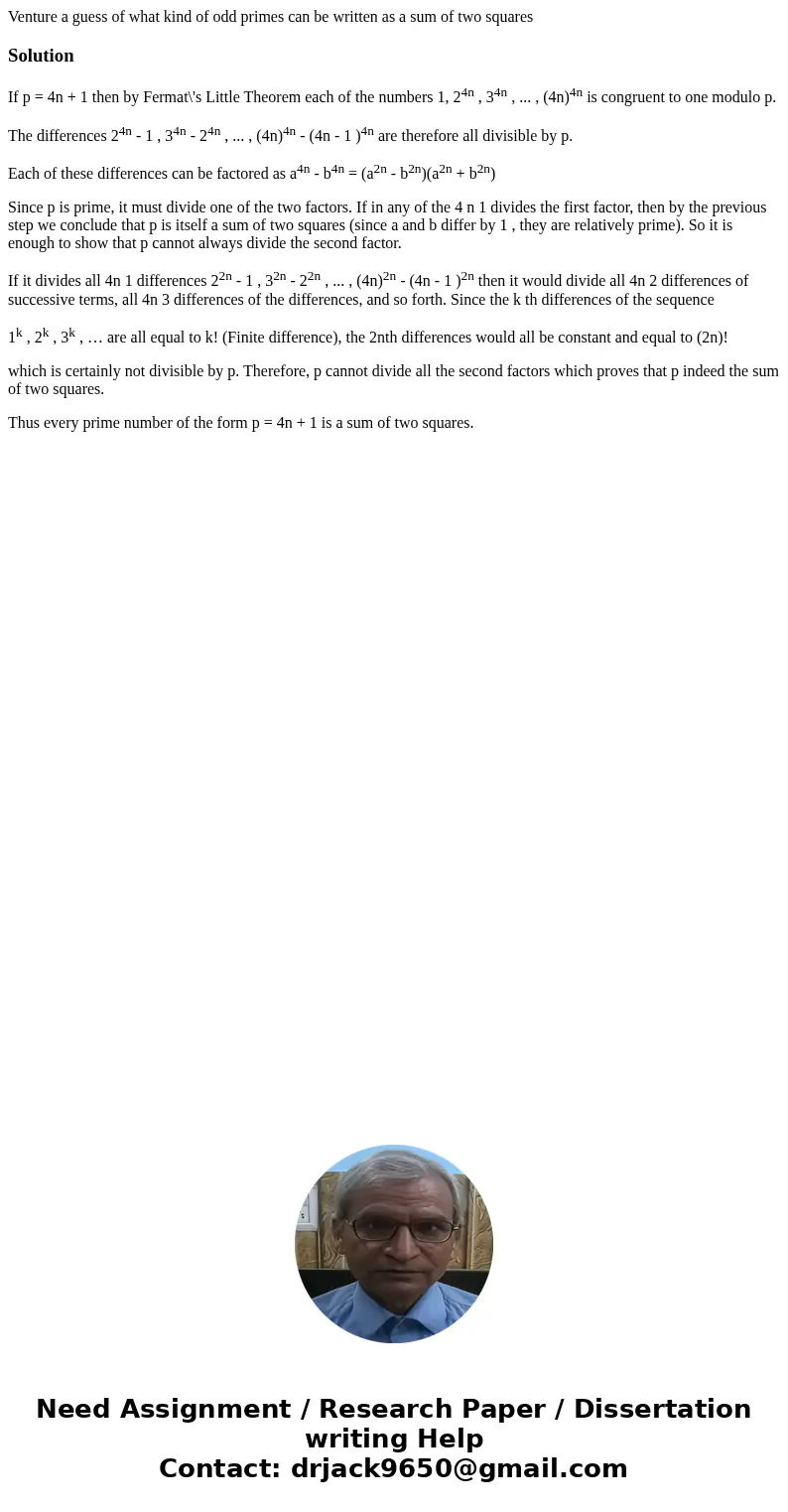Venture a guess of what kind of odd primes can be written as
Solution
If p = 4n + 1 then by Fermat\'s Little Theorem each of the numbers 1, 24n , 34n , ... , (4n)4n is congruent to one modulo p.
The differences 24n - 1 , 34n - 24n , ... , (4n)4n - (4n - 1 )4n are therefore all divisible by p.
Each of these differences can be factored as a4n - b4n = (a2n - b2n)(a2n + b2n)
Since p is prime, it must divide one of the two factors. If in any of the 4 n 1 divides the first factor, then by the previous step we conclude that p is itself a sum of two squares (since a and b differ by 1 , they are relatively prime). So it is enough to show that p cannot always divide the second factor.
If it divides all 4n 1 differences 22n - 1 , 32n - 22n , ... , (4n)2n - (4n - 1 )2n then it would divide all 4n 2 differences of successive terms, all 4n 3 differences of the differences, and so forth. Since the k th differences of the sequence
1k , 2k , 3k , … are all equal to k! (Finite difference), the 2nth differences would all be constant and equal to (2n)!
which is certainly not divisible by p. Therefore, p cannot divide all the second factors which proves that p indeed the sum of two squares.
Thus every prime number of the form p = 4n + 1 is a sum of two squares.

 Homework Sourse
Homework Sourse